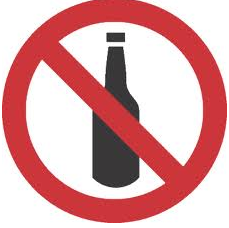To Drink or Not To Drink: Genetics of Alcoholism
 Dear Dr Darcy,
Dear Dr Darcy,
I’m a nineteen-year old girl from Belgium and I have a question for you…When I was 11 years old, my parents divorced because my dad had an alcohol addiction. My dad was drunk practically every day. Not that he was abusive or something, just drunk. My dad never wanted to go to any of these AA-groups and ignored the problem. So now, almost ten years later, the problem is still the same. Apart from the fact I now only see it two weekends a month instead of every day.
My mom always said my dad and I are pretty alike…I started thinking that, because we [are alike], I would get easily addicted to alcohol as well. Every time I went out with friends I was scared to get drunk, so I didn’t drink alcohol anymore (in Belgium you can drink alcohol when you’re 16). Every weekend I’m with my dad, and he’s drunk again, I imagine myself at his age, in the same situation. I can tell you: that’s something I want to avoid at all costs!
So do I really have more chance of an alcohol addiction? Or am I just concerned about nothing?
ANSWER
Without a doubt, alcoholism runs in families. What remains in question are two issues:
a). Does environment play a bigger role than genetics?
b). Which gene carries the trait?
I was hoping to give you exact statistics on the likelihood of becoming an alcoholic, but the statistics vary widely. Suffice it to say that you are more than twice as likely to become an alcoholic as a friend who has no family history of alcoholism. Consequently, avoiding binge drinking is a very smart idea.
It’s great that you see your father as an example of what you don’t want to be, however, now it’s time to begin working on a vision of what you want to look like. If being drunk in front of your child goes on your list of what you want to avoid, what behavior(s) would take the place? How would you want to behave in front of your child? Get as specific as possible. Consider making a list of the Top 10 or 20 behaviors that you don’t want. Then, for each behavior, flip the negative to describe what you’d want instead. It’s important to know what you want as clearly as you know what you want to avoid. We get what we focus on in life. Too many adults wind up with their parents’ negative characteristics because all they focused on was what they wanted to avoid and they created self-fulfilling prophecies.
With that said, you are not destined to become an alcoholic, and with all due respect to your mother, it’s inappropriate for a divorced parent to verbalize comparisons between her children and her ex-husband, as clearly such comparisons are not meant to be positive. Furthermore, divorced parents often create stronger similarities (between their ex-spouses and their children) by verbalizing such opinions, since children become who we tell them they are. She should focus less on how similar you are to your father and more on what her own shortcomings were that allowed her to remain married for 11+ years to an alcoholic.
Bottom line: If you’ve seen that alcohol has ruined your father’s marriage, and that it has negatively impacted his relationship with you, why would you engage in the same behavior (drinking alcohol)? There’s no magical formula to living a sober life. Don’t drink alcohol, do something different, and be assured that you won’t become an alcoholic.
Writer’s Stats: Female, Lesbian